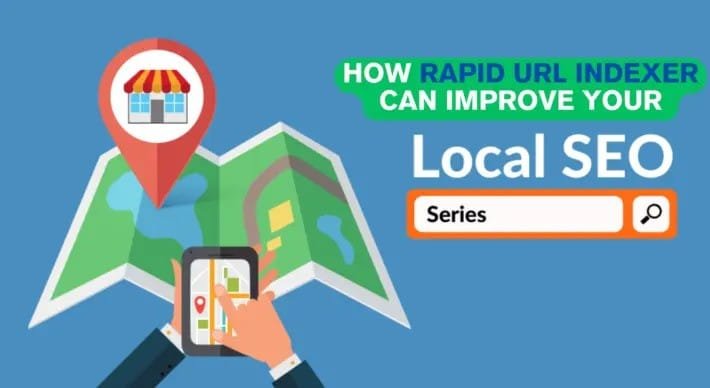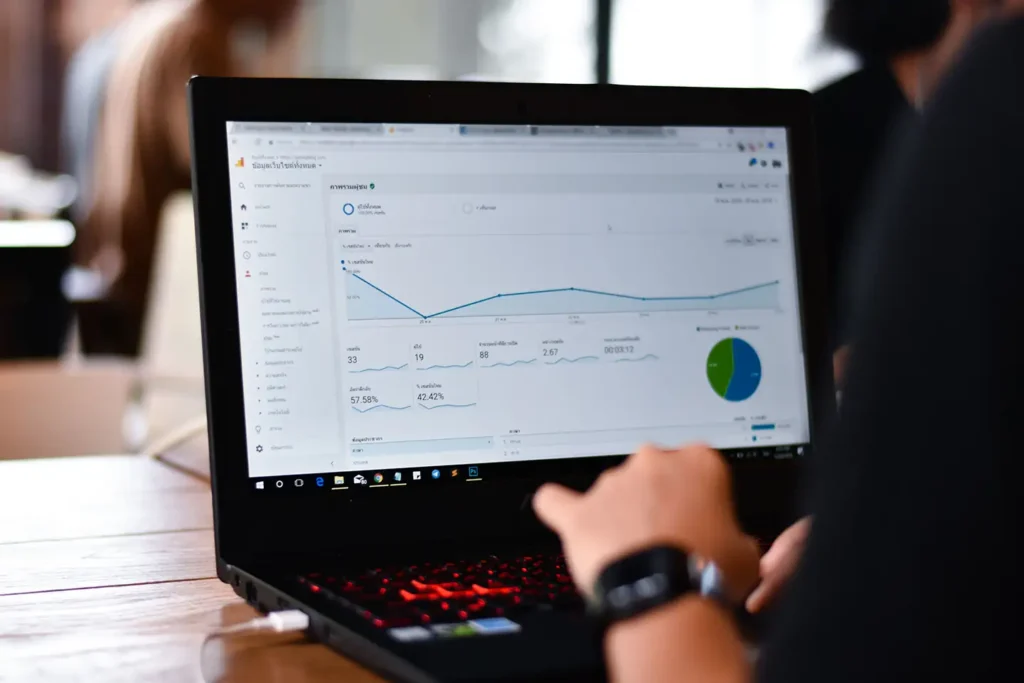In the fast-paced world of digital marketing, local businesses must stay ahead of the curve to maintain visibility and attract potential customers. One crucial factor often overlooked is the speed at which URLs are indexed. A rapid URL indexer ensures that your business pages appear in local search results faster, helping to drive local traffic and improve search engine rankings. For businesses in Texas, where competition for local search visibility is fierce, mastering this technique is vital.
At Mastodon Marketing, we specialize in empowering businesses with strategies like rapid URL indexing to elevate their online presence.
Introduction
Local SEO is the backbone of modern digital marketing, helping businesses connect with their nearby audience. It involves optimizing a website’s visibility for relevant local searches, making it an essential tool for businesses that rely on foot traffic or location-based services. Unlike traditional SEO, local SEO focuses on local search results, integrating tools like Google My Business to boost rankings.
For Texas-based businesses, local SEO takes on added importance. From bustling coffee shops in Austin to niche services in Dallas, ensuring your business is discoverable requires more than generic SEO strategies. A rapid URL indexer tool can transform your SEO efforts by ensuring important pages get indexed quickly, improving your website’s visibility and driving customer engagement.
Understanding Local SEO in Texas
The Basics of Local SEO: What It Is and Why It Matters
Local SEO refers to the process of optimizing your website to rank higher in local search results. This strategy is pivotal for small businesses, helping them compete with larger brands by targeting specific areas and local keywords. Features such as local citations, positive reviews, and relevant content play a significant role in local SEO success.
For instance, a local coffee shop looking to attract nearby customers can leverage local SEO strategies to ensure it appears in “coffee shops near me” searches. Rapid indexing of new content, such as blog posts about local events or promotions, ensures the business stays relevant and visible in search engine rankings.
How Local SEO Differs from General SEO Practices?
While general SEO aims at improving global or national visibility, local SEO zeroes in on location-specific searches. It prioritizes elements like Google My Business listings, accurate phone numbers, and local keywords to connect businesses with their target audience. Key differences include:
- Localized Content: Local SEO emphasizes creating content relevant to a specific region, such as blogs on Texas-based events or updates on local regulations.
- Quick Indexing: Local SEO relies heavily on rapid indexing to ensure your updates, like a new menu or seasonal promotions, appear promptly in search results.
- Customer Engagement: Engaging with local customers through social media and reviews is a critical aspect of local SEO, unlike the broader focus of general SEO.
For businesses in Texas, understanding and implementing these distinctions is critical for success. Mastodon Marketing helps bridge the gap between general and local SEO, using tools like rapid URL indexers to deliver faster results and a competitive edge.
Introduction to Rapid URL Indexing for Local SEO
Defining Rapid URL Indexer: An Overview
A rapid URL indexer is a tool or technique designed to accelerate the process of getting a web page indexed by search engines like Google. In the context of local SEO, this means ensuring that your website or specific pages are quickly added to search engine results, allowing potential customers to discover your business sooner.
Unlike traditional indexing processes, which can take days or weeks, rapid indexing focuses on faster results. By using tools such as Google Search Console or third-party rapid URL indexer tools, businesses can notify search engines about new or updated content, ensuring online visibility in a shorter timeframe. For local businesses, this process is essential to keep up with significant updates, such as new promotions or announcements, ensuring they remain competitive in the world of digital marketing.
The Importance of URL Indexing in the Local SEO Landscape
URL indexing plays a pivotal role in determining your website’s search rankings and overall visibility. When your pages are indexed quickly, they are available to appear in local search results almost immediately. This is especially crucial for time-sensitive updates like local events, seasonal sales, or new services.
In the competitive local business environment, rapid indexing offers several key advantages:
- Enhanced Visibility: Quick indexing ensures your important pages are accessible to potential customers searching for relevant local keywords.
- Improved Customer Engagement: Freshly indexed content like blogs or positive reviews can capture attention and drive traffic.
- Higher Rankings: By adhering to search engine guidelines, rapid indexing helps businesses achieve better rankings in relevant local searches.
- Competitive Edge: With faster indexing, businesses can outpace competitors by appearing first for critical keywords like “local coffee shop” or “SEO agency in Texas.”
For businesses in Texas, where local search competition is intense, rapid URL indexing can be a game changer. At Mastodon Marketing, we integrate rapid indexing into our local SEO strategies, helping clients improve their online presence and connect with their target audience effectively.
Preparing for Rapid URL Indexing: What You Need
Identifying Necessary Tools and Resources for Effective Indexing
To implement rapid URL indexing, having the right tools and resources is critical. Key tools include:
- Google Search Console: The primary platform for submitting new URLs and monitoring their indexing status.
- Rapid URL Indexer Tools: Third-party solutions designed for faster indexing, particularly for businesses managing multiple pages.
- Analytics Platforms: Tools like Google Analytics or Ahrefs to track performance and ensure pages remain visible in search results.
Best practices for effective indexing include:
- Regularly updating your site with fresh content and maintaining a logical URL structure.
- Removing broken links and ensuring your site adheres to search engine guidelines.
- Using structured data and schema markup to enhance search rankings for specific queries.
These tools and practices form the foundation of successful rapid indexing efforts, ensuring your pages are ready to appear in local search results.
Setting Up Your Website for Success in Local Search Results
Preparing your website for local SEO success requires more than just technical optimization. You must focus on creating an engaging and user-friendly experience. Key steps include:
- Creating Relevant Content: Publish valuable content tailored to your local audience. Blogs about local events, customer success stories, or Texas-specific topics resonate well with local users and improve your site’s local traffic.
- Optimizing Local Citations: Ensure consistency in your phone number, address, and business name across all directories and platforms. This is vital for improving your credibility and local search visibility.
- Leveraging Social Media: Share your new content on social media platforms to encourage indexing through increased engagement and traffic.
- Fixing Technical Issues: Address broken links, improve site speed, and ensure your website is mobile-friendly for a seamless user experience.
By setting your website up for success, you create an environment where rapid indexing can thrive, allowing your business to capitalize on the benefits of local SEO efforts. At Mastodon Marketing, we guide businesses through every step, ensuring they achieve a stronger online presence and attract more local customers.
A Step-by-Step Guide to Implementing Rapid URL Indexing
Step 1: Selecting the Right Indexing Tool for Your Business
When choosing a tool for rapid URL indexing, it’s essential to consider your business’s unique needs and scale. Tools like Google Search Console are reliable for most small to medium-sized businesses, providing free and effective URL submission features. For larger websites or those requiring faster results, specialized rapid URL indexer tools such as IndexNow or other third-party solutions can streamline the process.
Key considerations when selecting a tool include:
- Ease of Use: Ensure the tool integrates seamlessly with your website and offers a user-friendly interface.
- Speed and Efficiency: Opt for tools that prioritize faster indexing, especially for important pages that need immediate visibility.
- Support for Local SEO: Verify that the tool allows you to emphasize local keywords and target local search results effectively.
By choosing the right tool, your business can ensure a smoother and more efficient indexing process, keeping your SEO efforts ahead of competitors.
Step 2: Optimizing Your URLs for Indexing and Local SEO
Before submitting your URLs, it’s crucial to optimize them to align with local SEO strategies. Properly structured and optimized URLs improve your chances of higher search rankings and enhanced user experience.
Key Optimization Tips:
- Include Local Keywords: Incorporate relevant terms like your city, region, or industry in your URL structure .
- Fix Broken Links: Regularly audit your site to identify and resolve broken links that can hinder the indexing process and damage your credibility.
- Create Clean URL Structures: Use concise, descriptive URLs that are easy for both users and search engines to understand.
- Focus on Mobile Optimization: Ensure your site and URLs load quickly on mobile devices, as mobile-first indexing is now a critical search engine guideline.
By taking these steps, you prepare your URLs for faster indexing and improved visibility in local search results.
Step 3: Submitting Your URLs for Rapid Indexing
Once your URLs are optimized, the next step is to submit them to search engines for rapid indexing. Using Google Search Console, follow these steps:
- Log in to Google Search Console: Navigate to the URL Inspection Tool.
- Enter Your URL: Paste the URL you want indexed into the search bar and click “Enter.”
- Request Indexing: If the URL is not indexed, click the “Request Indexing” button to alert Google.
- Use a Sitemap: For multiple pages, submit a sitemap file to notify search engines of your website’s structure and changes.
For additional speed, some businesses use third-party rapid indexers that leverage API integrations to notify search engines instantly. Regular submissions ensure your fresh content and updates are accessible to your local customers.
Step 4: Monitoring and Analyzing Indexing Performance
After submission, tracking your indexing progress is vital for assessing your SEO strategy’s effectiveness. Use tools like Google Search Console and analytics platforms to evaluate performance.
Key Metrics to Monitor:
- Indexing Status: Check which URLs are indexed and identify any that failed the process.
- Search Rankings: Track how newly indexed pages perform in local search results.
- Local Traffic: Use analytics tools to measure the increase in visits from local users.
- Engagement Metrics: Monitor interactions like time on page, clicks, and conversions to assess user behavior.
By regularly analyzing these metrics, you can refine your approach, identify issues, and ensure your content remains visible in relevant searches. This continuous optimization helps your business maintain a competitive edge in the world of digital marketing.
The Impact of Rapid URL Indexing on Local SEO Rankings
How Rapid Indexing Influences Local Search Visibility?
Rapid URL indexing is a game changer in local SEO, directly influencing your online presence and local rankings. When search engines quickly index your pages, they become visible to potential customers almost immediately. This fast-tracked visibility is crucial for businesses aiming to capture local audiences with fresh content or timely promotions.
For example, if a business like a local coffee shop launches a holiday promotion, rapid indexing ensures the page is accessible in relevant local searches promptly. This quick action helps businesses:
- Capture Local Traffic: Timely updates rank higher in local search results, driving more foot traffic.
- Improve Search Rankings: Faster indexing boosts the likelihood of being prioritized by search engines for relevant keywords.
- Enhance Customer Engagement: Immediate visibility enables businesses to connect with users actively searching for local solutions.
By leveraging rapid indexing tools, businesses can secure a competitive edge in their market, ensuring their content reaches the right audience at the right time.
Case Studies: Successful Local Businesses in Texas Leveraging Rapid URL Indexer
Several Texas-based businesses have benefited from using rapid URL indexers to amplify their local SEO efforts:
- Coffee Shop in Austin: A coffee shop optimized its website with local keywords and leveraged a rapid indexer to publish updates about weekly live music events. The result? A 40% increase in local traffic within two weeks.
- Boutique in Dallas: By integrating a rapid URL indexing tool, a Dallas boutique ensured its new seasonal product pages were indexed and visible quickly, leading to a 25% boost in local rankings.
- Home Repair Service in Houston: This business used a rapid indexer to launch a promotional blog targeting Texas homeowners, resulting in higher engagement and improved visibility in local search results.
These case studies highlight how businesses can turn fast indexing into measurable growth opportunities.
Navigating the Challenges and Solutions in Rapid URL Indexing
Common Pitfalls in URL Indexing and How to Avoid Them
While rapid indexing is powerful, businesses often encounter challenges that can limit its effectiveness. Common pitfalls include:
- Irrelevant Keywords: Failing to use local keywords reduces the page’s relevance to search engines and users.
- Broken Links: Links that lead to errors hurt your site’s credibility and slow down indexing.
- Poor User Experience: Pages with slow load times or confusing layouts can negatively affect visibility.
Solutions:
- Conduct keyword research to target local searches accurately.
- Regularly audit your site to identify and fix broken links.
- Optimize your site for mobile users and ensure it loads quickly for a better user experience.
By addressing these pitfalls, businesses can maximize the potential of rapid indexing.
Troubleshooting Tips for Indexing Issues Specific to Texas Businesses
Texas businesses may face unique challenges, such as targeting broad geographic areas or competing in saturated local markets. Here are some solutions:
- Geo-Specific Keywords: Use keywords that focus on Texas cities or neighborhoods (e.g., “plumber in Houston” or “Austin boutique”).
- Localized Content: Create content specific to local events or trends to capture attention in relevant searches.
- Utilize Google My Business: Ensure your profile is updated with accurate contact details, business hours, and customer reviews.
These strategies help resolve indexing issues and improve visibility in Texas-based local search results.
Conclusion
In today’s competitive landscape, rapid URL indexing is a vital part of a successfullocal SEO strategy. It allows businesses to maintain a robust online presence, improve search engine rankings, and connect with local customers quickly and effectively. By implementing the right tools, optimizing your URLs, and avoiding common pitfalls, you can position your business for long-term growth.
At Mastodon Marketing, we specialize in leveraging tools like rapid URL indexers to enhance your business’s visibility and attract more customers. Ready to optimize your local presence? Contact us today to get started.
Questions
How Long Does It Take for a URL to Get Indexed for Local SEO?
Typically, URLs can take anywhere from a few hours to several days to be indexed. Using tools like Google Search Console or a rapid URL indexer can significantly shorten this time to a matter of minutes or hours.
Can Rapid URL Indexing Affect My Site’s SEO Negatively?
If implemented correctly, rapid indexing is highly beneficial. However, overusing indexer tools or submitting poorly optimized pages can lead to penalties. Focus on relevant keywords and valuable content to avoid negative effects.
What Makes a URL Indexer “Rapid” and How Does It Compare to Traditional Indexing?
A rapid URL indexer expedites the process by notifying search engines immediately about new or updated pages. Traditional indexing relies on search engine crawlers, which may take days or weeks to find and index pages. Rapid tools ensure faster results, especially for local SEO efforts.



